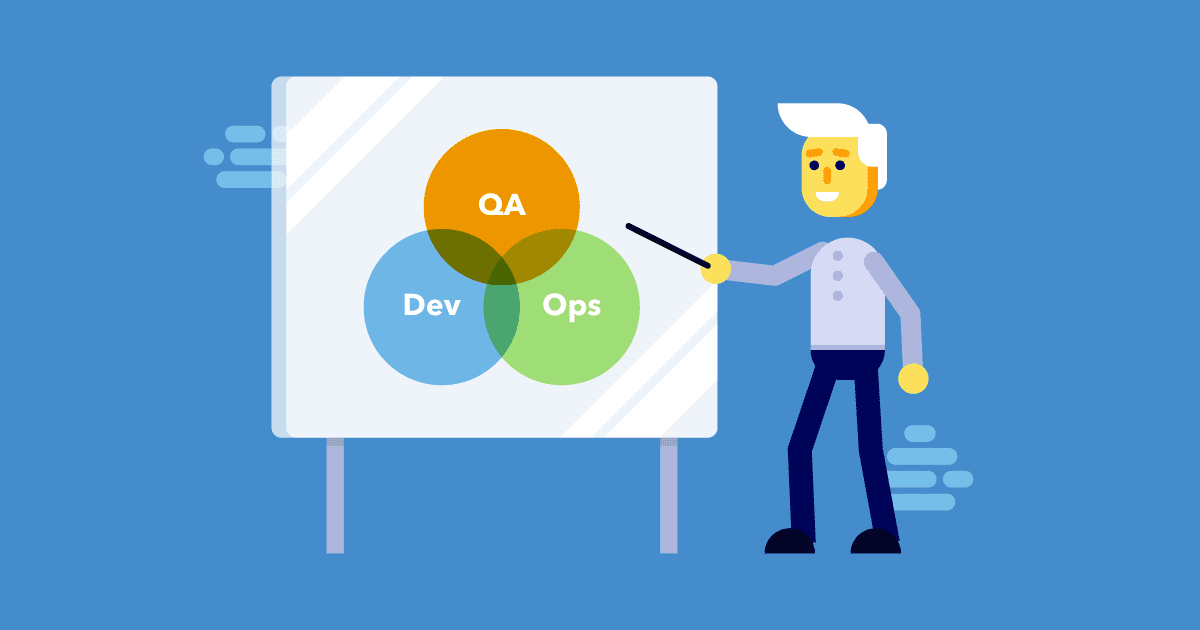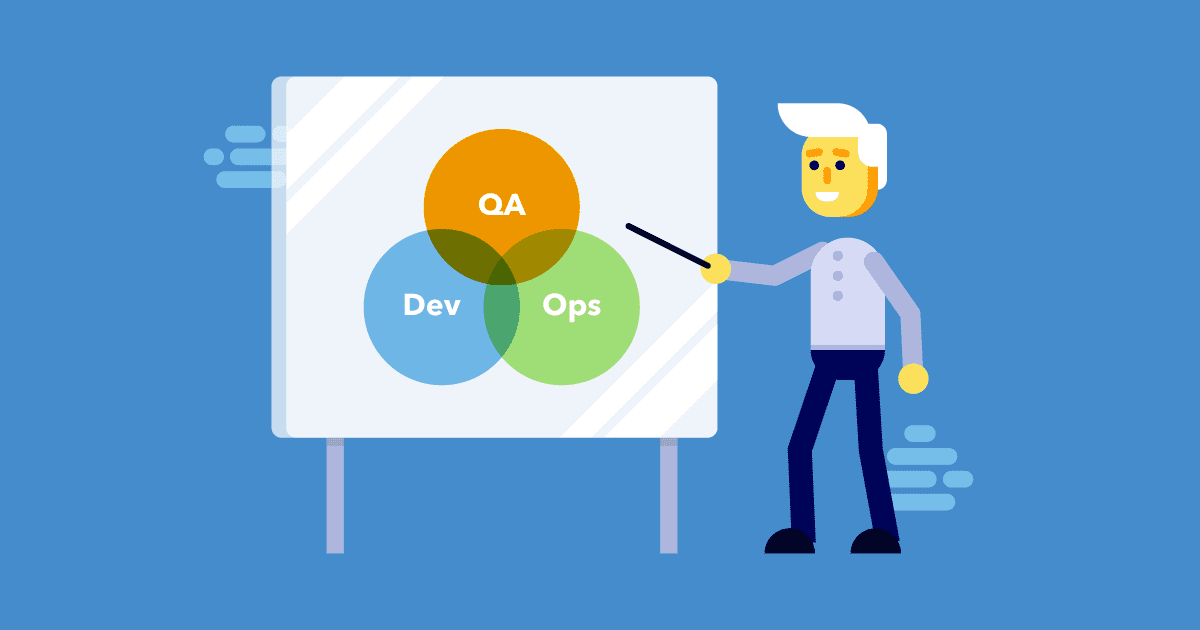Is QA still relevant in DevOps? The answer is yes, but testers need a fresh approach to DevOps testing by developing new skills.
What is DevOps?
DevOps is a working method built on cooperation between Development and Operation so high quality products can be released faster. DevOps testing needs to adapt to the new methodology to remain relevant. This closer connection between the two usually separate units means that a fix or change made by developers can get into production much faster because operations are already more closely aware of the whole process. This reduces the overall time needed in a traditional deployment cycle of fixing in staging, validation by QA, waiting for approval, then deploying to production. Due to its primary objective of automating the deployment process, DevOps is the most preferred concept within organizations. The aim of DevOps is for teams to work collaboratively throughout, which ultimately brings greater customer satisfaction through faster turn around.
The involvement of QA in the DevOps cycle
The assurance of quality is the responsibility of quality testers, and this remains true today even with the changes that DevOps brings. There is however, a shift in focus which can be a concern for testers but the need for quality assurance is not reducing but it is just a change in mindset that is required. In DevOps, the modern tester needs to broaden their horizon from restricting their role to bug finding, to now participating in technical meetings, contributing towards deployment, quick fixes, critical analysis, and the final review.
With the advancement and adoption of DevOps, another point under discussion is whether there is still need for a dedicated QA team. The DevOps objective is to create a group made up of members from all areas, mainly development, operations, and QA, who work together as one entity, so the need for a dedicated QA team is declining.

The “How to Test” part has not changed as much as “When to Test,” because DevOps requires continuous testing, unlike traditional methods where testing would only start at the end of development. DevOps needs testers to be involved at all levels of the project.
Top Testing Skills Needed in the DevOps Model
If we examine the roles of developer and QA in software development, the common response is that a developer is the person who codes, and the QA is, the one who tests. Even today, the statement holds true, but DevOps introduced the concept of every individual within an organization being required to expand on their roles. For example, apart from coding a developer is also expected to test their code, and at the same time, testers need to add debugging as well as coding skills.
With the evolution of any new methodology or practice, it always requires individuals, teams and the organization as a whole to understand its relevance, then upgrade skills to be capable of adapting and utilizing the benefits of the new approach.
In this section, let’s review some of the top capabilities required by a tester to enable them to adapt and adjust to the DevOps model.
Enhance your coding skills
Testers who can code are preferred over testers who can only test. Coding skills are no longer just a development tag, but in this modern IT era, a software tester with coding skills is considered more of a gem in the team. In addition to their core role of reviewing, they can utilize this skill in making quick fixes and configuration whenever required.
Improve Coordination & Communication Skills
DevOps requires every individual to be communicative and vocal. A good listener is what defines a tester, but DevOps demands them to be way more than just a listener. This process involves several meetings with all the different stakeholders, and each discussion is targeted to bring an outcome. Hence, participation from everyone is what assists in determining those outcomes.
Enhance Skills to test as and when the code is available
Waterfall to Agile brought levels of transformation. A tester aware of the Agile Methodology will find the DevOps approach quite similar, and it may be easy for them to adapt, but a QA tester working with the waterfall model will feel the difference. DevOps expects testers to test whatever and whenever a piece of code is ready, which may even mean just a UI of a form, without its functional triggers. This shift requires a level of preparation on the tester’s front since waterfall testers are mainly used to test from a fully developed functionality perspective.
Automate repeated tests
When it comes to delivering something fast, the testing window is usually the one to be compromised, and testers are expected to review changes as quickly as they can. This expectation adds to the already long list of challenges a tester has, so to verify repetitive tasks the best way is to begin investing time in defining a way to automate those tasks.
Improve your awareness of DevOps Tools
Last but not the least, upgrade your database with the knowledge of some of the most used DevOps tools in the industry.
Conclusion
“Change is the only constant thing in the world” and changing yourself along with those changes is what can help you keep that pace. From Waterfall to Agile Methodology and now to DevOps, a top tester needs to be able to adapt to new developments and practices.
